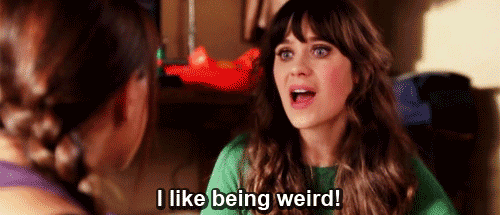I'm pretty sure I've gone through more life-crises in my early life than I ever will in mid-life.
It's a difficult thing—to become someone, to assume your autonomy as an adult. The imminent pressure, which is often unspoken, to be like everyone else is most challenging to the ones who don't know how to be anyone but themselves and then for those who naturally soak up their surroundings, it may hard to find their individual place. At the old age of seventeen, I stumbled upon the world of Myers-Briggs.
The Myers-Briggs Type Indicator (MBTI) is a system which characterizes people into 16 personalities. While it is indeed not real science, because people are too complex to pigeonhole, it does approach explaining the mind with real cognitive functions like Introverted Intuition and Extraverted Sensing, etc. to help characterize different types of people--which I believe is viable.
You may have heard a friend say, “I'm an ENFP!" or some other variation of the letters. I'm an INFJ, supposedly the rarest type at only one percent of the population. In reading the INFJ summary over at 16personalities.com, I don't think I had ever felt more understood.
I delved head-first into figuring 'me' out. I scrolled forums and googled tendencies and habits of mine with the letters 'INFJ' just to see if I could rationalize the things about myself I, and sometimes others did not understand. For instance, sometimes I'm able to intuit a fact about someone or what they're feeling just by picking up odd details and well sometimes I just “see" it. Apparently, that's an INFJ thing.After a while, I became so immersed in “being an INFJ" that I didn't want anything else to define my personality. I didn't want to change even if it were for the better. INFJs are hard to get to know, but I let a pseudoscientific method of psychology convince me that this is what I am and that means I don't need to let anyone in.
Coming into college, I had to learn that if I was ever going to mature or move forward in life, I had to let go of who I thought I was. Yes, I am an INFJ, but that doesn't mean I can't be vulnerable. That doesn't mean I can't be the life of the party (but really, who am I kidding).
So, to use MBTI or even similar indicators like the Enneagram test to figure oneself out is not without its faults, but it comes with the formidable challenge of understanding oneself and therefore the knowledge of how to better oneself.
Besides, learning about others' or even celebrities' types is a lot more fun than it sounds. The title of this article is a push forward and a caution to those who enjoy researching their personality type or would like to. It is also to say, you are not your personality—you are you. MBTI allowed me to understand patterns in my thinking of others, myself, and the world more objectively while also allowing me to put myself into a box.
Now, I try as hard as I can to break out of that box however possible, whether that's being less pretentious, critical, or unknowable. I also let myself be. When I find that I think of a new, potentially better way to do the same thing as others, I try not to push it away simply because others might think odd of it. I admit, trying is much less effective than doing, and often leads to more trying, but at the end of the day, understanding oneself is the key to bettering and becoming more fully who you are.




















